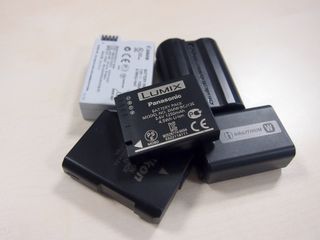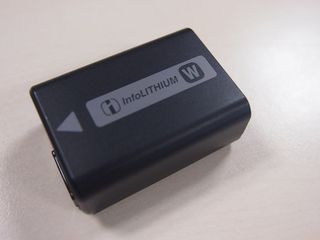Lithium scarcity could hit cameras
"Red alert" over lithium supplies threatens camera batteries

Lithium: You may not know what it looks like or where it comes from but it powers your camera, your phone, your laptop...and if the government gets its way, it will soon be powering your car too.
This might sound like a positive shift from fossil fuels, but lithium has just been named one of the earth's most scarce elements in a PwC (PricewaterhouseCoopers) report. Consequently uptake of lithium-intensive electric cars could have a huge impact on lithium powered electronics, including nearly all cameras.
A global wholesale shift to electric cars could exhaust the earth's lithium reserves in as little as 50 years, even disregarding non-battery lithium consumption, which currently accounts for three quarters of lithium consumed.
Extra demand
The main issue is that a typical electric car consumes 4,000 times more lithium than an AA battery and 800 times more than a large laptop. So what does this mean for photographers? Well, this extra demand for lithium not only poses the threat of spiralling battery prices but puts photographers at the mercy of lithium rich countries. That'll be Bolivia, Argentina, Chile and China then.
Socialist Bolivian President Evo Morales has previously made moves to nationalise Bolivia's lithium (which accounts for 50% of the world's reserves) and has taken a distinctly anti-capitalist stance. Likewise, China has introduced trade barriers to protect many of its natural resources.
This lack of cooperation could result in battery shortages or consumers being held ransom to suppliers' price hikes. Then there's the issue of lithium reserves simply running dry. "You may find more, you may find a substitute, but we haven't yet", states PwC's sustainability chief, Malcolm Preston speaking on Radio 4 in early December.

Faced with uncertain supplies of lithium and significant new automotive demand, lithium researcher William Tahil highlights that depletion rates of lithium would exceed current oil depletion rates, switching dependency from one dwindling resource to another. With this in mind, having both electronics and vehicles relying on lithium seems unwise - especially considering that in 2010 around 6 million cameras and over 2 million (albeit predominantly fossil fuelled) cars were sold in the UK alone.
Get daily insight, inspiration and deals in your inbox
Get the hottest deals available in your inbox plus news, reviews, opinion, analysis and more from the TechRadar team.
Tahil adds that if portable electronics demand continues at its current growth rate, "Intense competition will arise between the automotive industry and the electronics industry for supply of lithium batteries. Planned and possible production increases will not be able to meet demand from both sectors."
Electric cars
Since batteries used in electric cars require so much more lithium, Tahil recommends that technologies which use unconstrained resources are developed for automotive applications. However, more sustainable technologies could also be used in cameras too.
Alternative options include nickel-metal hydride, zinc and alkaline batteries. These technologies may not currently be as appealing as lithium batteries, but they are potentially more sustainable. Zinc for instance is around 20 times more prevalent than lithium.
With so many issues afflicting lithium, ranging from pure scarcity to political agendas and increasing demand, lithium batteries don't appear the most sustainable option for cameras. However, the scale of the issue will only really become apparent should electric cars take off in earnest...
Most Popular

